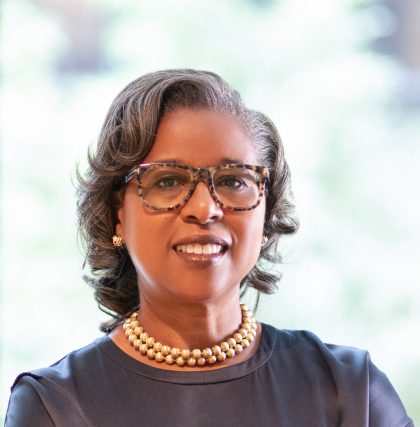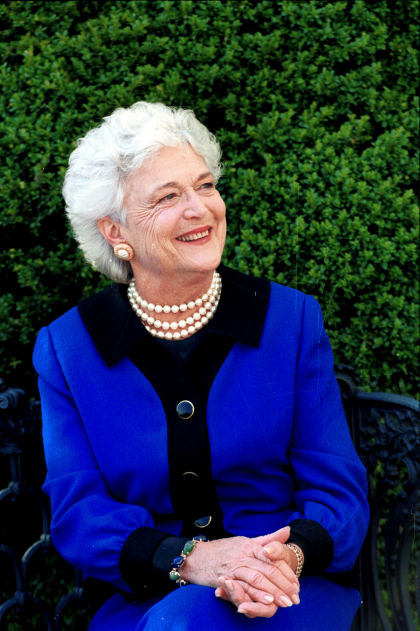In this month’s At the Helm, Victoria Jones spoke with British A. Robinson, the President and CEO of the Barbara Bush Foundation for Family Literacy. British discusses the vast issue that is low adult literacy, how COVID has allowed the Foundation to double down on its plans to turn it around, and the most meaningful aspects of her first two years as the foundation’s President and CEO.
Victoria: It’s been a little over two years since you joined the Barbara Bush Foundation as President and Chief Executive Officer. There has been a lot to figure out. What has been the most rewarding for you?

British A. Robinson
British: I think this moment in time—right now—is the most rewarding one yet, because I can clearly see that we had a plan; we put a lot of good work into the plan. We stuck to it diligently and the results are showing themselves. It was daunting in the beginning to put so much faith in that plan to fulfill Barbara Bush’s legacy. I thought the plan was good. Now I know it actually was good.
We deeply examined what we were doing. We have built an incredible board and a strong leadership team, all of whom are great champions for the organization. We’ve made financial investments and we are raising money (which I always think is validation that you are getting things right). And we’re finally at the place of execution. I think the joy, the gratitude, and the grace with which we got here is really rewarding.
Low literacy in adults is not a new issue. What is the Foundation doing to turn this around?
It is a massive issue. Today, there are 130 million adults in the U.S.—54% of our adult population—who cannot read, write, or comprehend. The barriers it presents are overwhelming. A 2020 Gallup study that we commissioned suggested that the nation could be losing as much as $2.2 trillion—or 10% of GDP—annually because of low literacy rates.

Barbara Bush
While the COVID-19 pandemic has been difficult in many ways, it has also been a blessing and an advantage to us. I know that’s hard to say. Low literacy in America is inextricably linked to all issues of inequity – whether it be concerning healthcare, housing, food insecurity, poverty, employment, etc. If you can’t read, write, or comprehend, then you’re more likely to have poor health outcomes, to have a low-wage or no job, and to struggle with providing for your family. Literacy is the through line in all of these issues. COVID, the ongoing racial reckoning, and other issues of this past year have really shone a light on issues of equity. Challenges like remote work, business closures, and lack of childcare help illuminate the fact that people are being left behind due to lack of access to literacy programs – and therefore, can’t fully participate in society as parents, workers, and citizens. Low-literate adults have been facing these disruptions all along without enough understanding that programs were not addressing all of these challenges. That’s why we continue to focus a lot of attention on technology innovations, like mobile apps, to help meet adult learners where they are.
I know we are focused on the right things. We provide innovative technology solutions, reading mentorship programs, and thought leadership and research. This clear focus has fostered further engagement from our donors and supporters. Recently we received a $2M gift from King Philanthropies to power our work in technology and innovation. Another longtime supporter, State Farm, has helped us pivot to remote and technology-driven programming in our reading mentoring programs.
Is there a singular lesson you’ll take away from your first two years in this role?
Right where we started: Trust the plan and don’t second guess yourself. That commitment was quickly put to the test with COVID. This commitment to our strategy also fostered trust in the staff. They saw my confidence and clear-eyed focus. They followed me through the fire. I took all that has happened in our country, and applied it to the relevance of our mission and vision to inspire them. I didn’t know I had that much energy! We have a team of true believers.
Now what?
We have to implement. I’ve been telling the team, “We have transitioned out of the transition.” The road is mostly clear; there are plenty of on-ramps. It is time to land the plane. Six months from now I want it to be easy to quickly download a list of achievements that are turning the tide on literacy. I want our supporters to know they made a wise investment. And, long-term, I want the number of adults who cannot read and write to drop – significantly.

